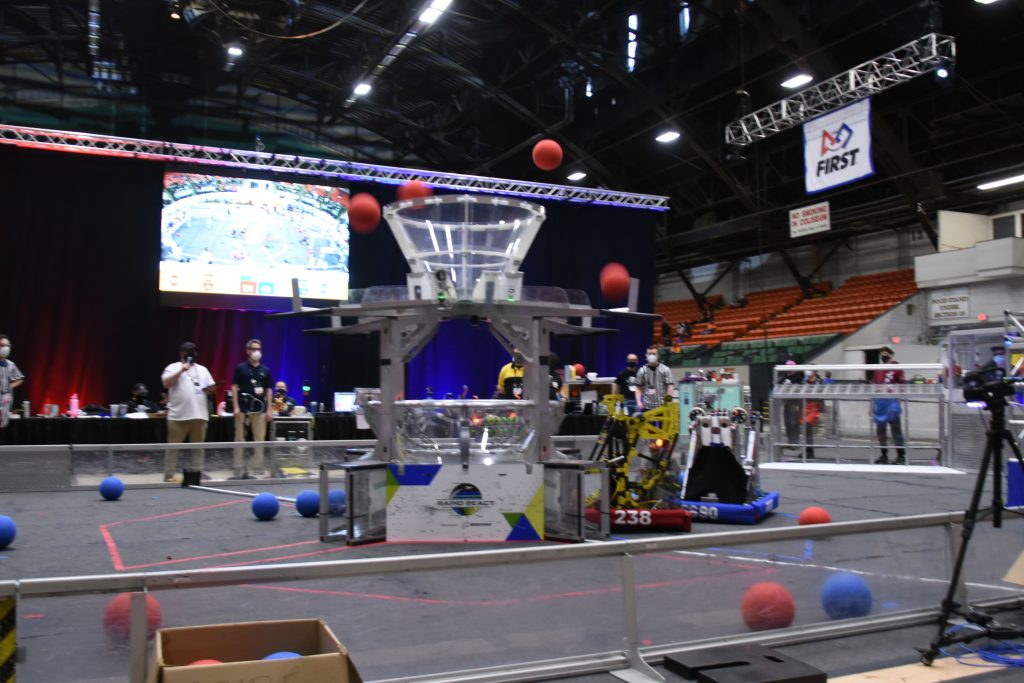
FIRST was founded in 1989 by Dean Kamen and Woodie Flowers in the hopes of getting the younger generation of students interested in science, technology, engineering and mathematics (STEM). FIRST stands for “for inspiration and recognition of science and technology” which is the main idea of the program. FIRST Headquarters is located in the same town as our very own FRC Team 238, Manchester, New Hampshire.
There are currently three programs in FIRST, FIRST Robotics Competition (FRC), FIRST Tech Challenge (FTC), and FIRST Lego League (FLL). The reason for FIRST having multiple programs is to make sure students of all ages can experience what FIRST has to offer.
FIRST is an organization which strives to get students involved in the STEM fields. The two main messages of FIRST are Gracious Professionalism® and Coopertition®.
Gracious Professionalism® is an ethos that runs as deep in our team as it does in the entirety of FIRST. The term was coined by Woodie Flowers, a co-founder of FIRST. The idea behind it is to be kind and generous to each other, but still being able to maintain the competitive nature in a courteous way. We always strive to keep Gracious Professionalism® within our team, whether we are in the shop, at a competition, or out in our community.
Coopertition® is something that goes hand-in-hand with Gracious Professionalism®. It promotes the ideas of innovation and learning. It’s all about teaching teammates and learning from the mentors. It is based off the idea that teams can and should help each other, even when competing.

Our team participates in the FRC Program. This is the high school level of FIRST, where we create the largest and most elaborate robots of all programs. FIRST Robotics Competition gives us a new challenge every January. We then have limited time, known as build season, to build a robot which meets the requirements to play the challenge given.
FIRST Robotics Competition gives high school students and their adult mentors the opportunity to work and create together to solve a common problem. Teams of students are challenged to design, build, and program robots and compete for awards, while they also create a team identity, raise funds, hone teamwork skills, and advance respect and appreciation for STEM within the local community.

